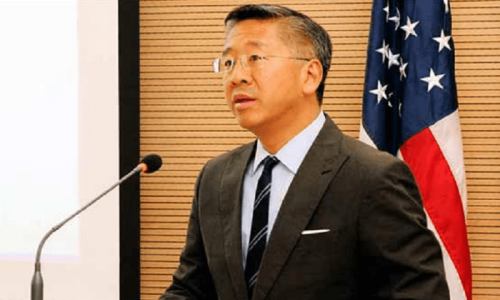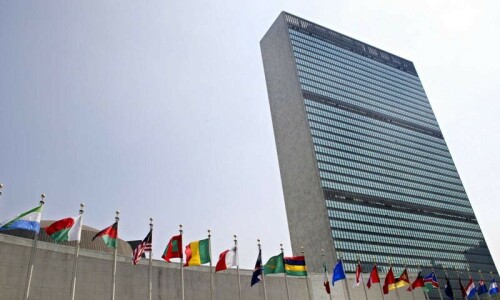WASHINGTON: The US government and the United Nations expressed concerns on Tuesday about a contentious religion-based citizenship law in India, with the UN calling the legislation “fundamentally discriminatory in nature”.
Rights advocates have criticised the 2019 Citizenship Amendment Act, which the Indian government moved to implement on Monday. Human Rights Watch and Amnesty International said it discriminates against Muslims.
Just weeks before Indian elections, Prime Minister Narendra Modi’s Bharatiya Janata Party government has been pushing to implement the law, which makes it easier to get Indian citizenship for non-Muslim refugees from Pakistan, Afghanistan and Bangladesh.
Rights groups say the law leaves out Shias from those countries while also excluding neighbouring countries where Muslims are a minority, like the Rohingya in Myanmar.
“As we said in 2019, we are concerned that India’s Citizenship (Amendment) Act 2019 (CAA) is fundamentally discriminatory in nature and in breach of India’s international human rights obligations,” a spokesperson for the Office of the United Nations High Commissioner for Human Rights said.
He added the office was studying whether the law’s implementation rules comply with international human rights law.
The US has also signalled reservations.
“We are concerned about the notification of the Citizenship Amendment Act on March 11. We are closely monitoring how this act will be implemented,” a State Department spokesperson said separately.
“Respect for religious freedom and equal treatment under the law for all communities are fundamental democratic principles,” the State Department spokesperson added in an email.
Activists and rights advocates say the law, combined with a proposed national register of citizens, could discriminate against India’s 200 million Muslims.
Published in Dawn, March 14th, 2024















































Dear visitor, the comments section is undergoing an overhaul and will return soon.